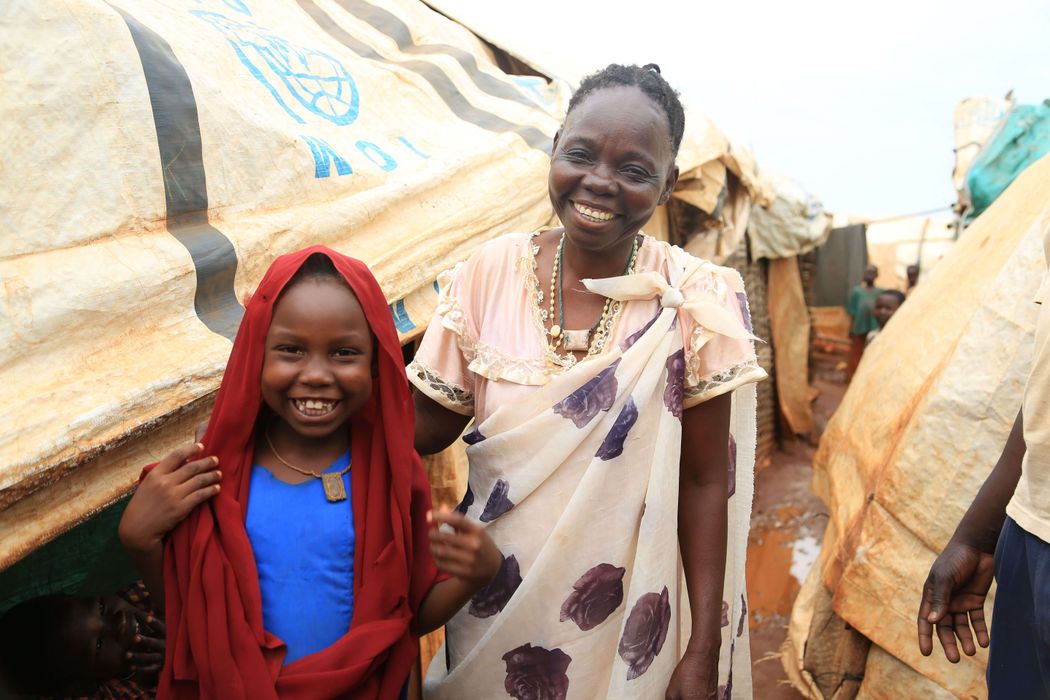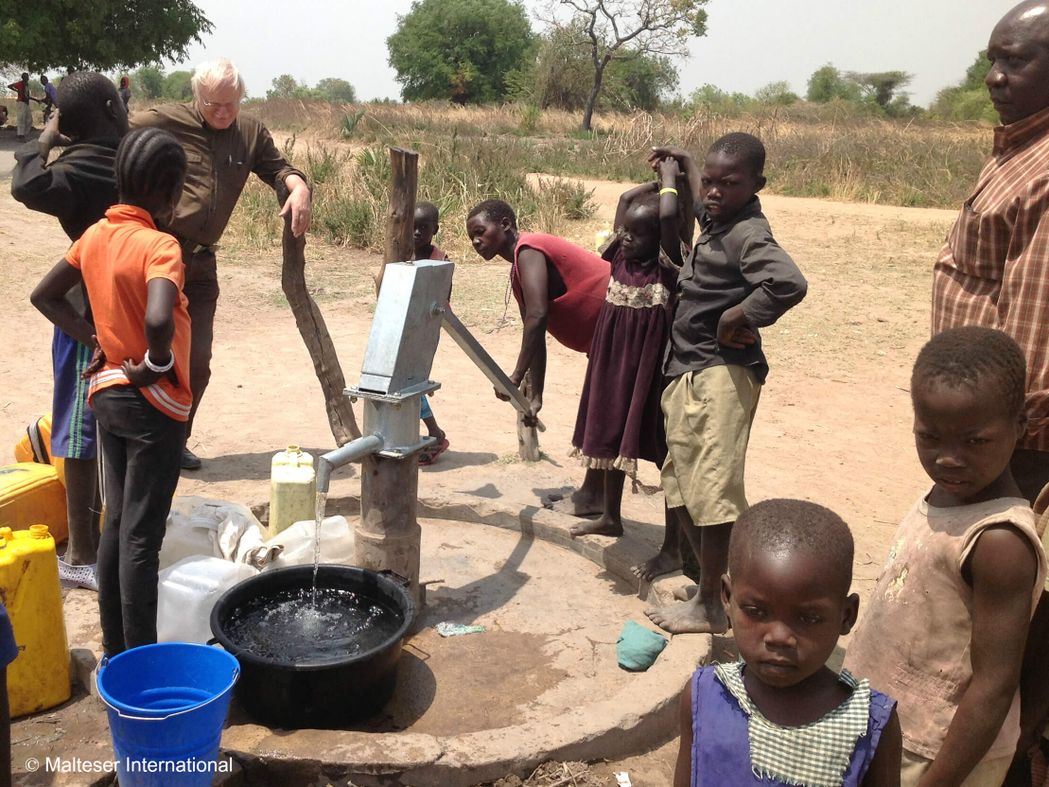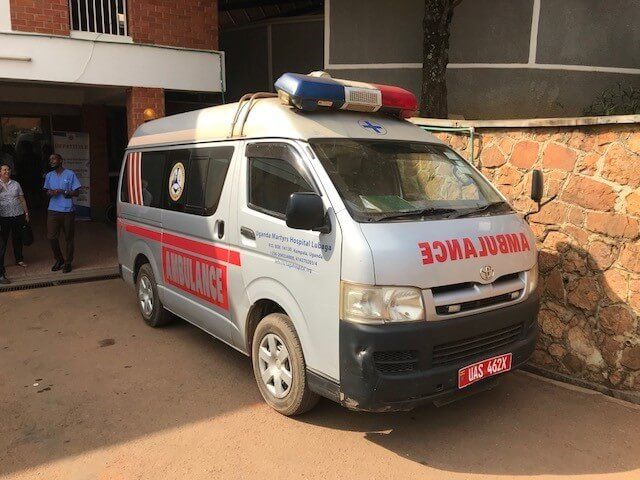“I am scared. . .but I have God on my side”
Tumalu refuses to be defined by her ordeal
A brutal civil war has forced more than a million people from South Sudan to seek refuge in neighbouring Uganda since 2013. Many have witnessed and experienced violence of all sorts. Although, Uganda’s open and progressive refugee policy has made the country a favourite destination for the refugees, challenges still remain for the new arrivals. Malteser International is providing clean drinking water among other interventions for the refugees in northern Uganda. In the midst of this crisis, a young South Sudanese refugee picks her way into the future.
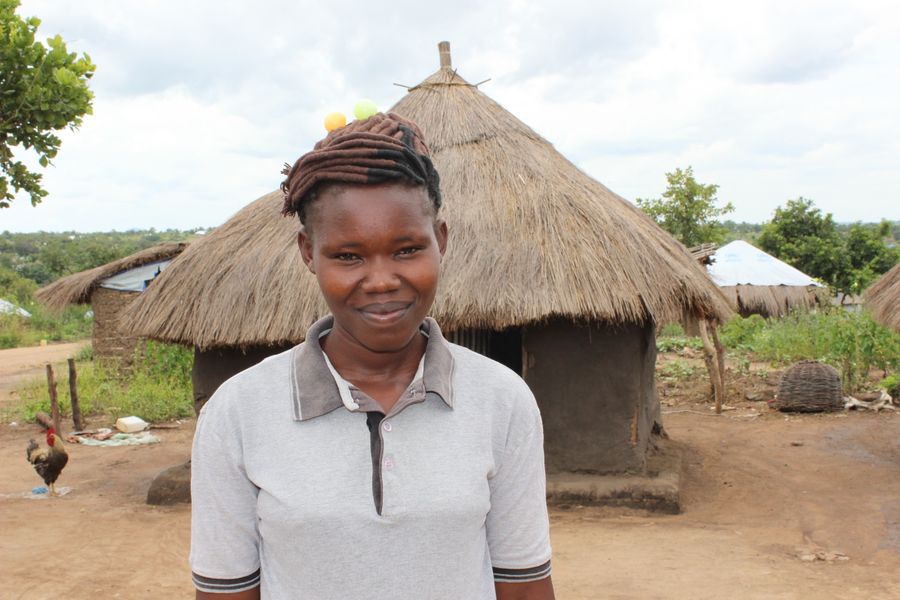
The first thing that stands out about Tumalu are her braids, elaborately plaited to form a single brown bunch hanging sideways on her head. “I was a hairdresser back at home,” she says calmly. “I love styling hair, and I will not allow the current situation stop me from doing it.” Tumalu is 25 years old, and comes from Yei, South Sudan. Just over a year ago, she fled the civil war in her country when armed fighters came to her village. Now she lives in a small mud hut with her mother, her two children, and her nephews in Rhino refugee settlement in northern Uganda, about 600 kilometres away from her native home.
Her smile fades away as she begins to recollect the ordeal of having to flee without her husband. “We heard gunshots, and I realized that people I knew were being killed at that very minute. My husband was not at home at the time, but we barely had time to run into the forest.” Fortunately, she managed to contact her husband when they arrived in Uganda, but hasn’t seen him since. Now she fears the worst for him. “We used to talk on the phone regularly, and he was planning to come too. His number has not been reachable for the past 3 weeks,” she mumbled, forcing back the tears. “I just want to believe his phone is lost.”
In Northern Uganda, the region bordering South Sudan is home to more than one million displaced South Sudanese who live in many settlements. More than 80 per cent are women and children, and many have had traumatic experiences on their way to safety. “We had to walk through the bush for days to avoid the fighters,” Tumalu recounts, staring into space. It has been over a year ago, but the fear is still fresh. “Once they see you, they rape you or kill you. Or they rape you and kill you.”
Upon their arrival in Uganda, Tumalu and her family received 900 square meters of land to build a shelter and cultivate crops. “We were happy when we received the plot of land,” she continues. “But we didn’t have water. I woke up every morning to walk to the river to fetch water. I would walk for about 45 minutes.”
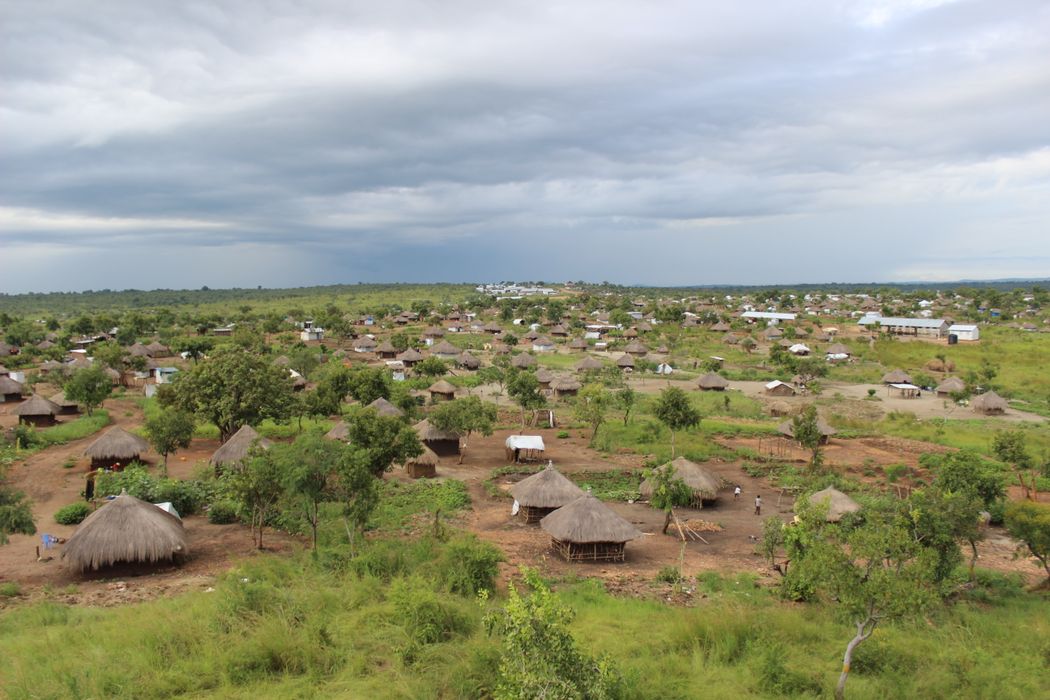
Water scarcity was already a problem in northern Uganda, and the arrival of refugees placed additional pressure on the limited resources. Many people were left with no choice but to collect water from putrid rivers and disease-infested ponds. “I felt very bad that I have to walk so far to fetch water that can kill my children,” says Tumalu with a shudder. “Then it happened. After a month of drinking water from the river, my first son had diarrhoea.”
These might interest you
How we are helping in Uganda
ERROR: Content Element with uid "369691" and type "dce_dceuid4" has no rendering definition!
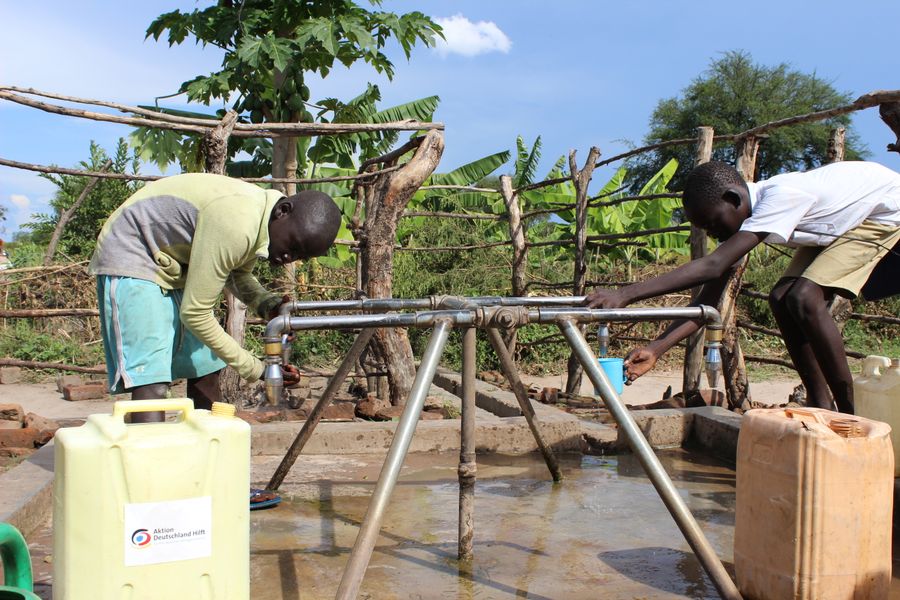
Malteser International has been working in various refugee settlements across northern Uganda to provide clean water for refugees and local communities alike. At first, water tanks were used to bring water to various points in Rhino camp – not such an easy feat considering the fact that the settlement covers about 60 square kilometres, and hosts over 120,000 people. While water trucking was carried out, efforts were made to provide long-term access to potable water in different parts of the settlement. Today, Malteser International’s water points provide 30,000 people with daily access to clean water.
Fast forward a year later, Tumalu now has a tap-stand just a few meters away from her hut thanks to Malteser International's solar-powered borehole system. The system is designed to lift water from the source to a large reservoir in the settlement. The water is then distributed to multiple tap-stands positioned near households. This way, women and children no longer have to spend hours walking or queuing for water. Instead the time saved collecting water can be spent on more productive activities. “You can see how close the water is to me” Tumalu beams, pointing at the nearest water point where children gather to collect water. “Now, I can use the water for all the important things I need to do, cooking, washing, and bathing. I have not heard of any diarrhoea case in this zone since the borehole was constructed. I also have enough time to read and do my work here.”

Tumalu did not complete her formal education in South Sudan because of her family’s financial difficulties. But here in Rhino camp, she is setting a new precedent for other young girls. She was recently elected as the Vice Chairperson of her zone in the settlement. In her leadership role, she helps to protect women and girls from gender-based violence. “Some women experienced bad things before they came here, and even here many women are victims of domestic abuse. We don’t want it to continue.”
There is still no end in sight to the crisis in South Sudan. For now, Tumalu sees a future for herself and her children in Uganda, and all she has is hope – hope that her resilience is enough to take her places, hope that someday she would be reunited with her husband, hope that she would complete her education, and hope that her luck would change for the better. “I am in a new chapter in my life, and I am scared of the situation but I am ready for them because I have God on my side.”
This intervention is funded by Germany's Relief Coalition Aktion Deutschland Hilft - ADH.
February 2018 / Michael Etoh


